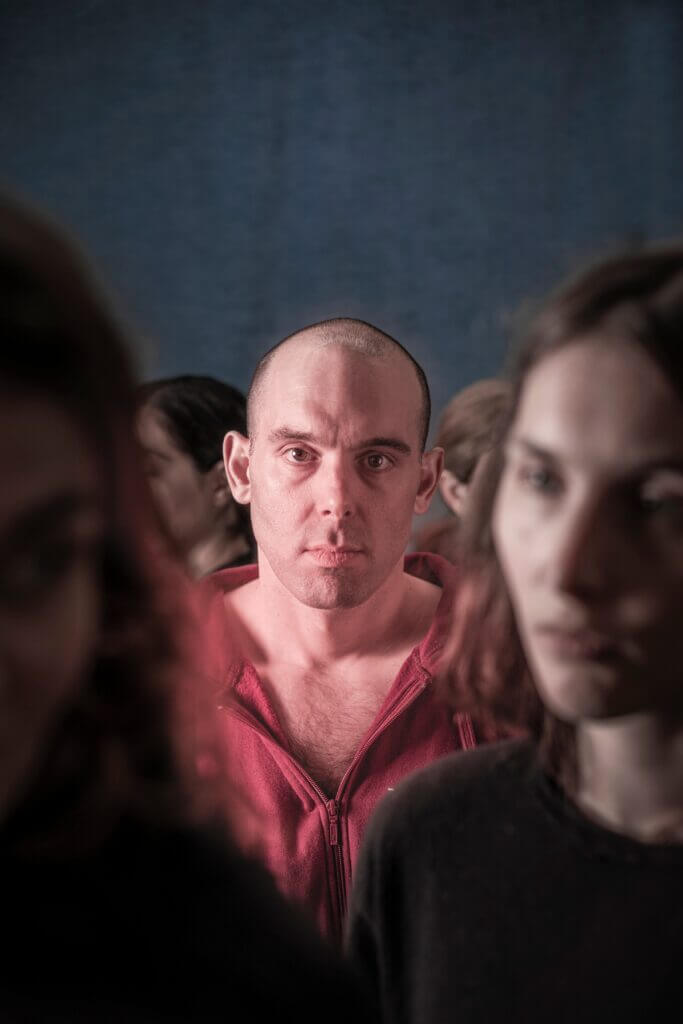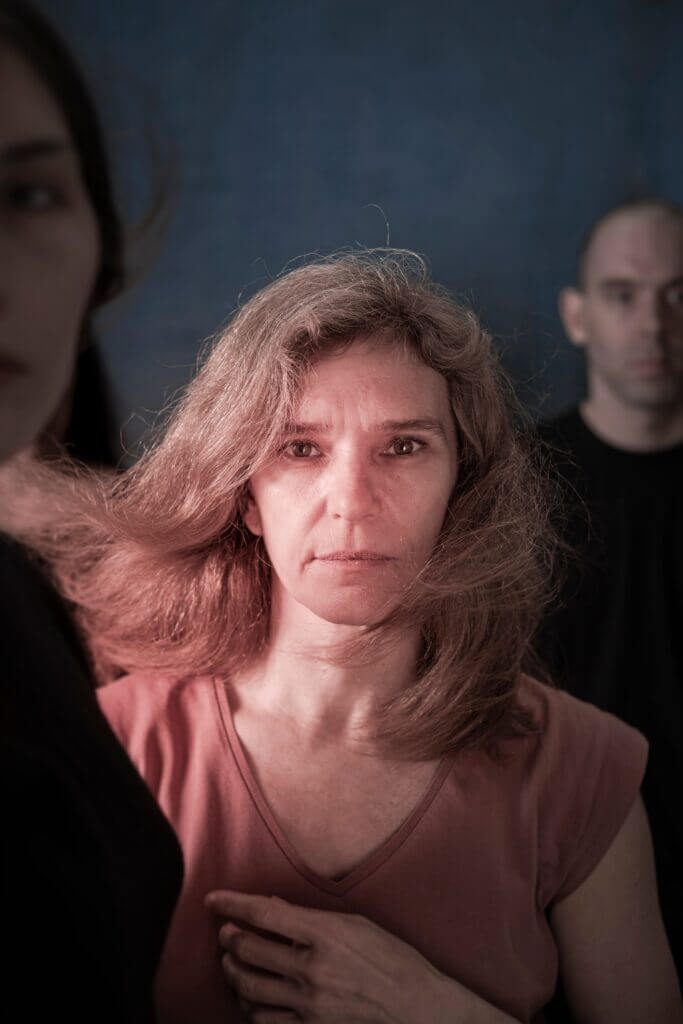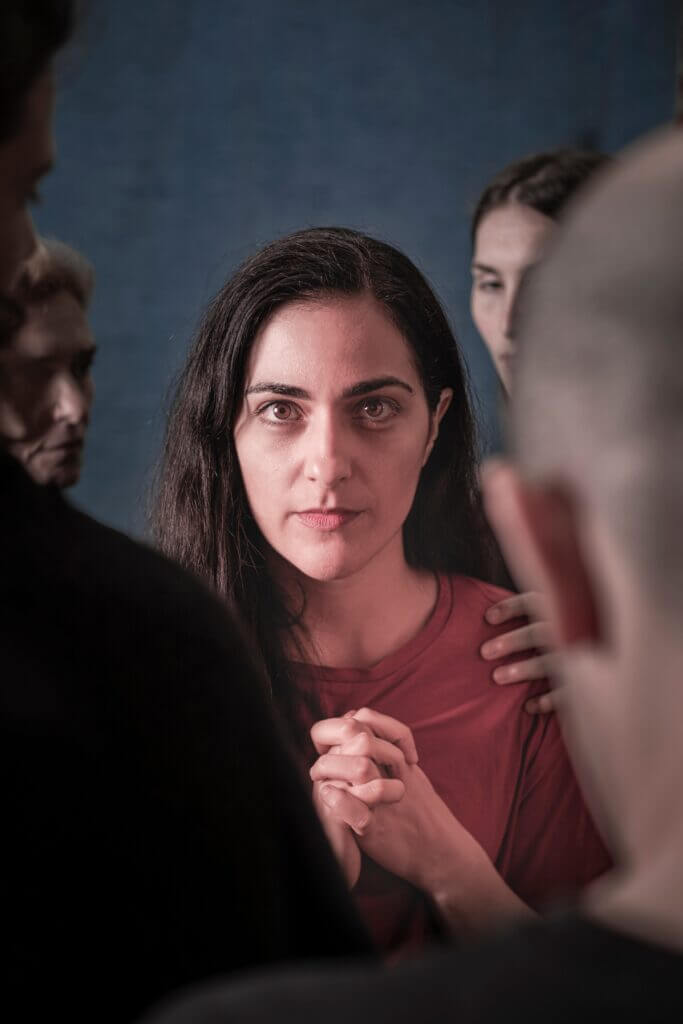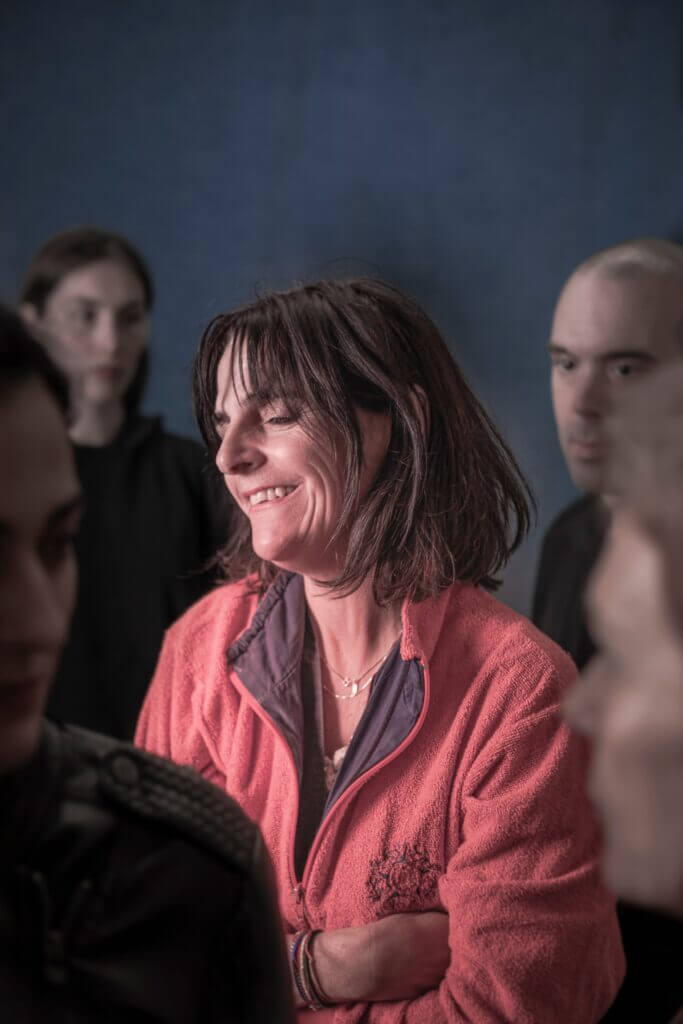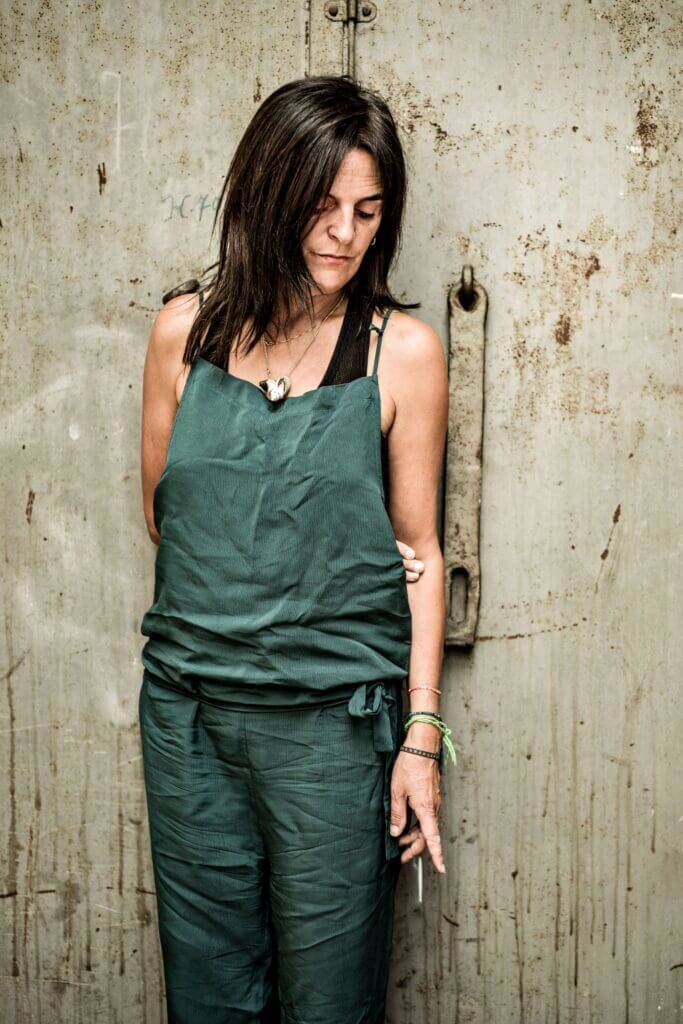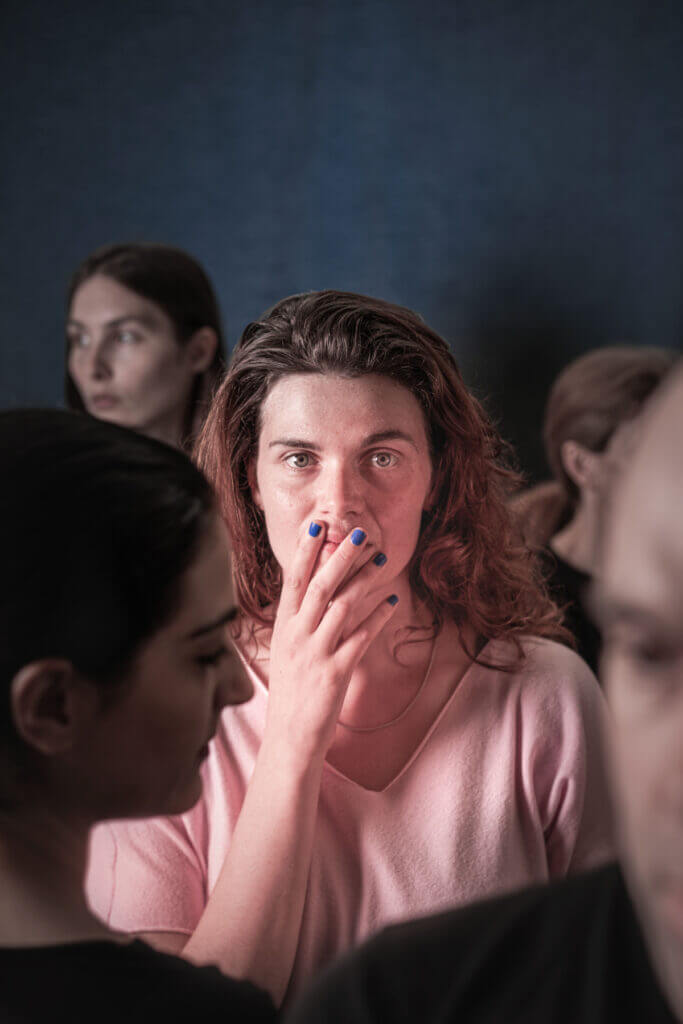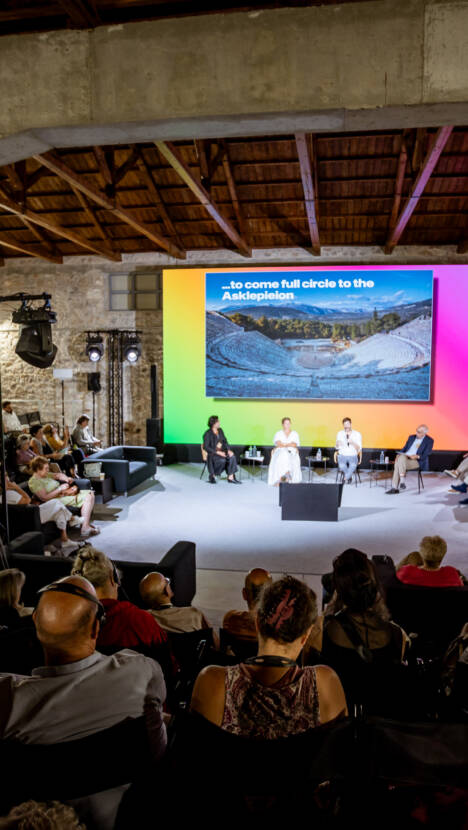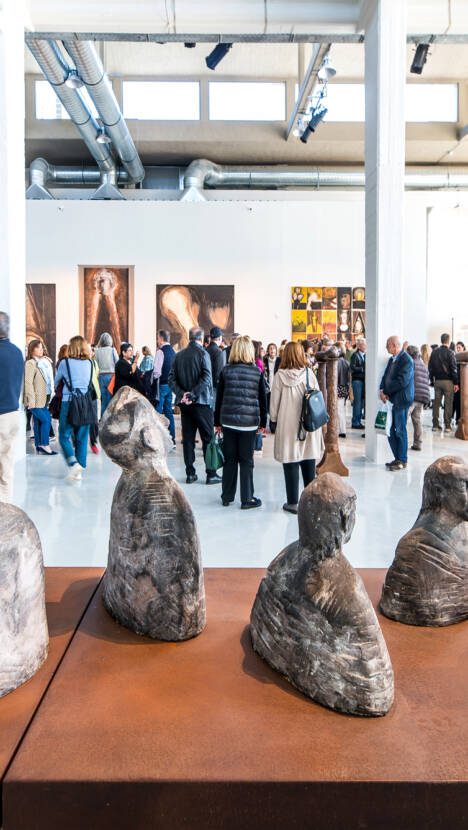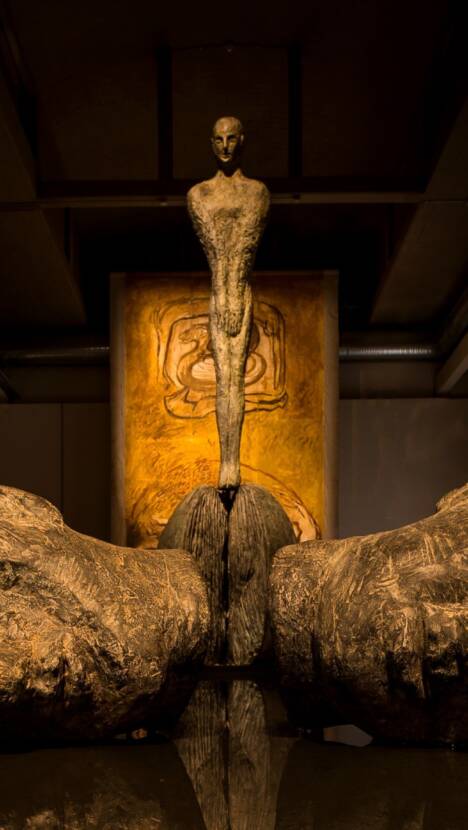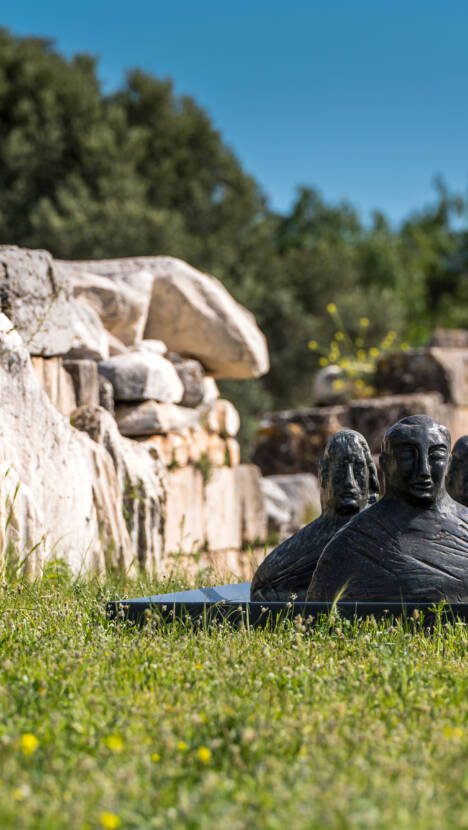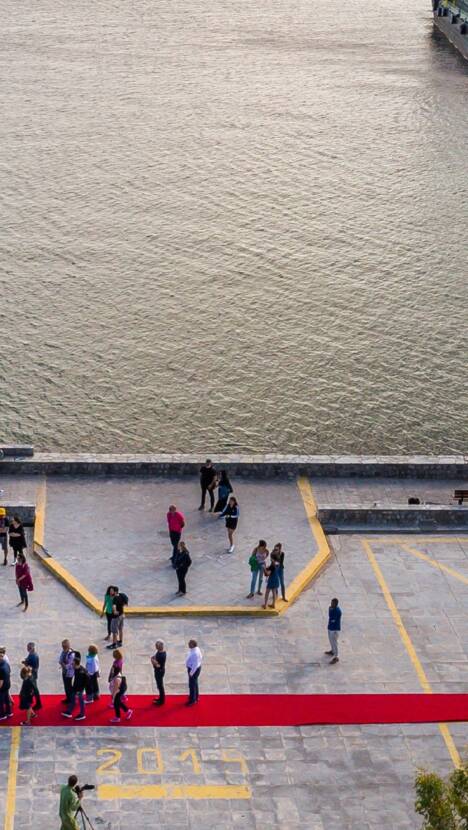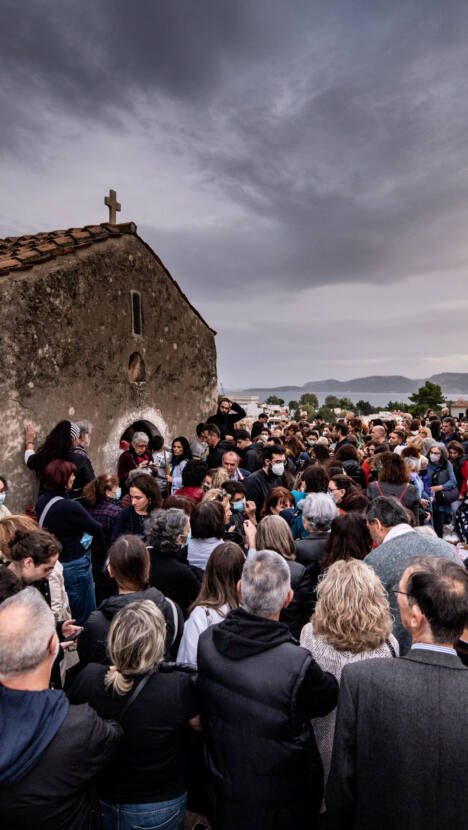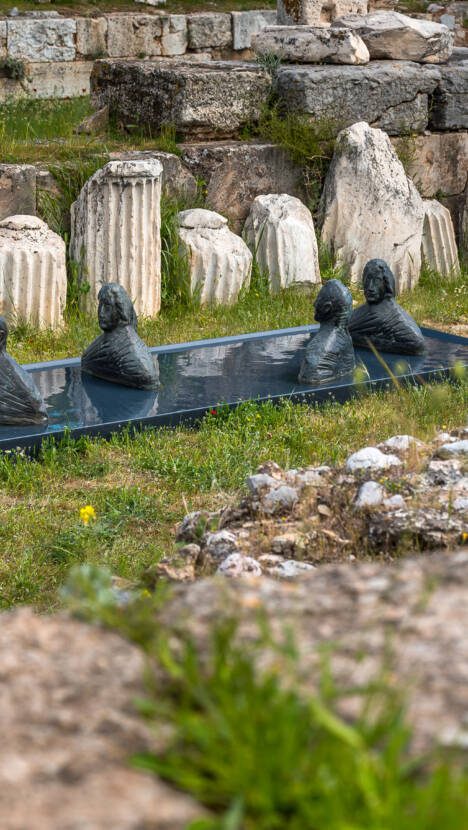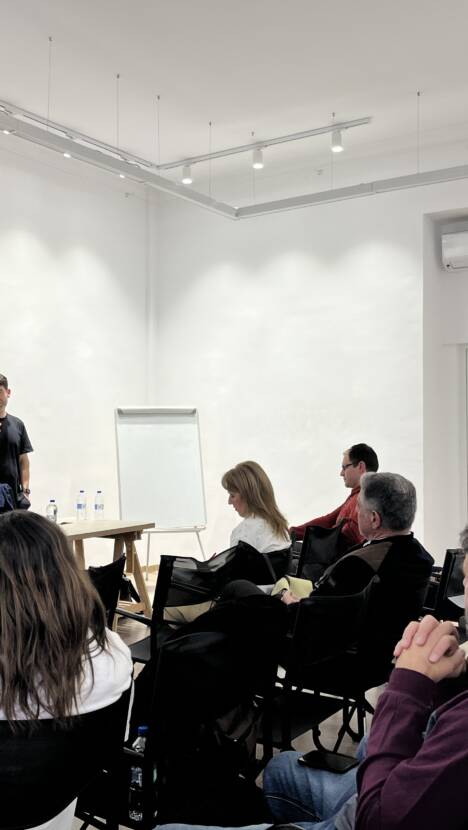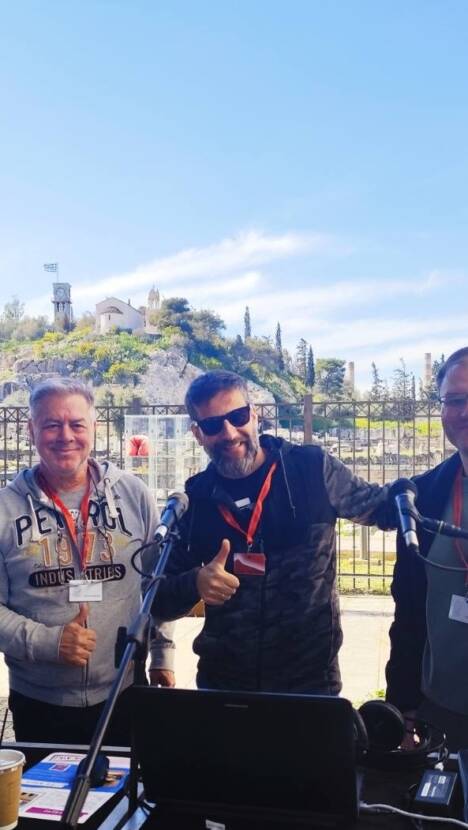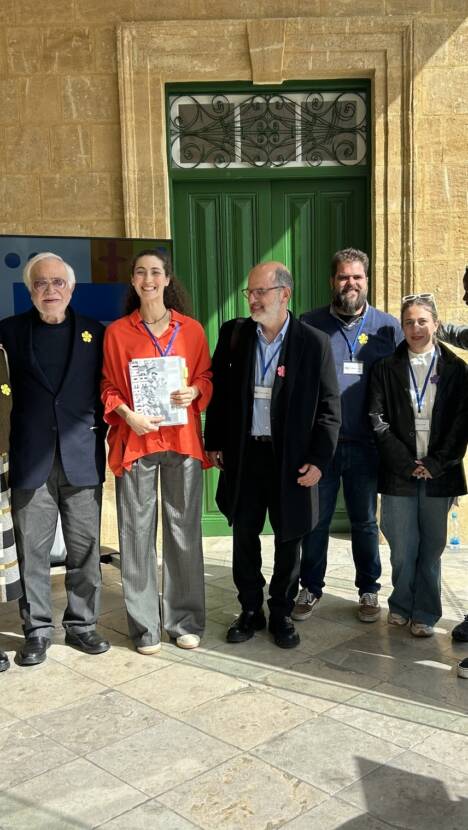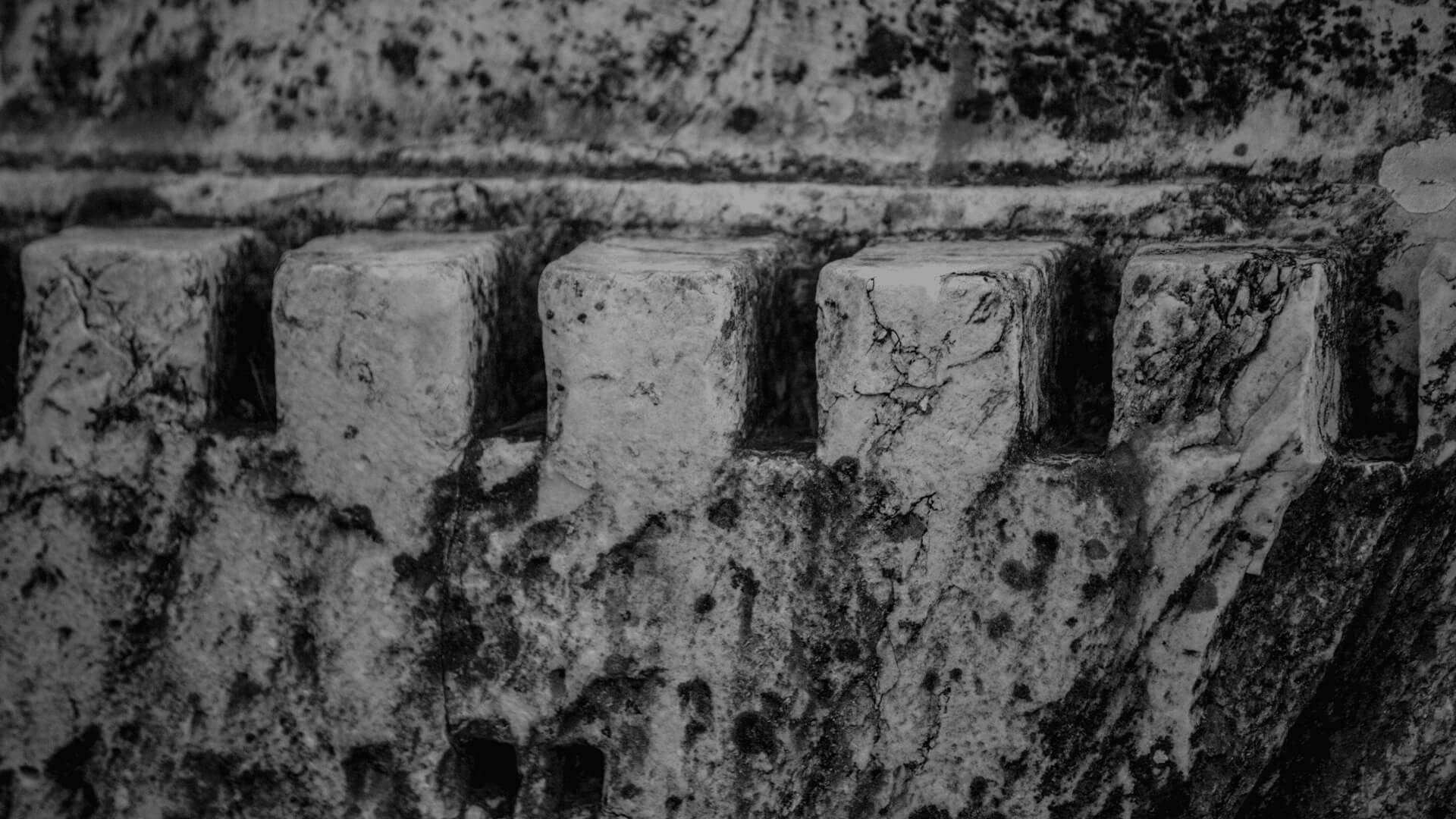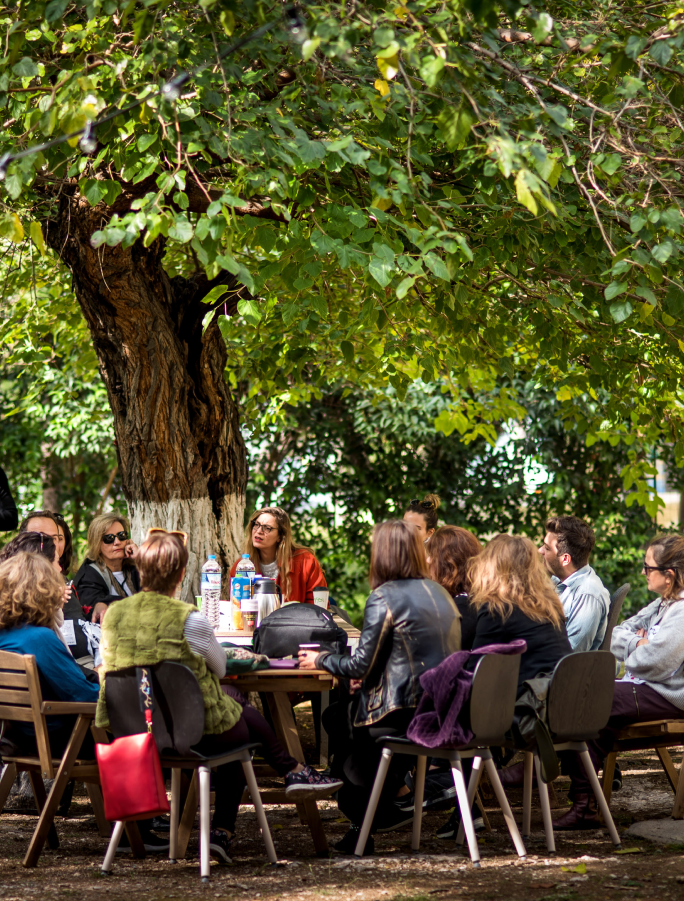Based on Aeschylus’ “Agamemnon”, this groundbreaking performance is held at the birthplace of the master tragedian to question contemporary gender identities and give a voice to the voiceless. Tg STAN, one of the most important contemporary theater ensembles in Europe, with a groundbreaking aesthetic and a long career in both contemporary drama and the classical repertoire, bring to Elefsina an emblematic performance, shedding light on a critical figure of tragedy, Clytemnestra. Based on an idea by Jolente De Keersmaeker, a founding member of the group and a formidable figure in the European performing arts scene, the performance approaches the three different versions of the first part of Oresteia in an unexpected way: it connects the astonishing poetic power of the original work by Aeschylus skillfully translated into English by Ted Hughes, and “injects” it with Austrian author Gustav Ernst’s “Blood Bath”, a work of raw and dismembered poetry that no longer follows Agamemnon’s perspective, but Clytemnestra’s instead.
Combining speech and dance aligned with the Greek choral tradition, and creating an unexpected polyphonic ensemble, with actors from Greece and Belgium and two dancers from the Philippines and Norway, tg STAN’s Klytaimnḗstra emphatically projects an important paradox; Women, who were silenced in the real world, earned a public function in tragic plays: the liberty to put their feelings, thoughts and motives into words. In this story, where rape and murder are ubiquitous, although seemingly trivial at the same time, Clytemnestra is not just a character avenging her daughter. She is the mother of all mothers, an obstructionist embodying female intuition and the non-rational, making a fundamental impact in her own way. Serving a critical function as both a woman and as an outsider—she is not even from Mycenae—she refuses to accept the situation as it is and deliberately chooses to fight violence with violence. Not out of pleasure—as is the case with Agamemnon—but because it is the only way to challenge the injustice against women and innocent citizens.
How can modern society, thousands of years after the writing of obscene work by Aeschylus, remain indifferent to barbarism? How can misogyny remain acceptable in modern times? When does intuition trump rationality? And what kind of associations does this age-old story of honor and revenge evoke in our bodies today?
The first part of Aeschylus’ Oresteia trilogy focuses on the story of King Agamemnon and his wife Clytemnestra. The royal decides to sacrifice his daughter Iphigenia, securing a favorable wind to sail his ships to Troy. When Agamemnon eventually wins the Trojan War, he returns home, where a confrontation with Clytemnestra awaits.
The performance features Greek and English surtitles
Special thanks toRobby Cleiren, Eurudike De Beul, Damiaan De Schrijver, the PublicBenefit Enterprise of the Municipality of Elefsina
Ticket Presale
www.ticketservices.gr | 210 7234576 | University Publishing House 39
Old Town Hall (Nikolaidou & Vas. Laskou, Elefsina) | Opening hours: Monday to Friday 17:30 – 21:30
Free transportation for the audience
Reservations here
Meeting point: Old Railway Station (Ermou & Piraeus street)
Departure at 19.30 for the Open Theater of the Old Mill of Elefsina and return to Athens at 23.30
A few words about the AESCHYLUS project ^
2023 Eleusis European Capital of Culture, launches the AESCHYLUS project ^, where original documentary works are presented, based exclusively on the works of the great Eleusinian tragedian. The aim of the action is to institute a rare dialogue on Aeschylus Drama. In this context, apart from the performance of Klytaimnḗstra on July 23 & 24, at the Old Olive Mill Open Theater, the same space will also host, on July 30 & 31, the performance of Aescylus’ Persians, featuring a number of excellent actors and directed by Dimitris Karantzas. Presale will start on Monday, July 18, via viva.gr.
A few words about tg Stan
STAN, an acronym for Stop Thinking About Names, is a theatre collective consisting of Jolente De Keersmaeker, Damiaan De Schrijver and Frank Vercruyssen. They met at Antwerp Conservatorium in the late 1980s where tutor Matthias de Koning from Maatschappij Discordia introduced them to a different, less dogmatic approach to theatre. The company operates on the democratic principle that everyone participates in decisions about everything, from text selection, set and lighting to costumes and posters. STAN puts the performer centre stage and firmly believes in the principle of the sovereign actor, i.e. that the actor is both player and maker.
Nothing is rehearsed in the conventional sense of the word but, rather, most of the rehearsal process takes place around the table. Once the play has been chosen, the text is reworked and retranslated to arrive at a new script. Only in the last few days before the première do the actors take to the stage and only when the spectators are seated in the auditorium does the production really come into being.
STAN nurtures a firm belief in the ‘living’ power of theatre: the performance is not a reproduction of something that is learned, but something that is created anew every night together with the audience. So, a STAN performance is not a finished product, but rather an invitation to a dialogue.
STAN is synonymous with text-based theatre and has recourse to an extensive and diverse repertoire. High on the repertoire list is the work of classic playwrights such as Chekhov, Gorky, Schnitzler, Ibsen, Bernhard and Pinter. Texts from the history of theatre are reread and brought into the here and now. Besides the classics, STAN is also drawn to the work of contemporary authors including, most recently, Yasmina Reza and Jon Fosse.
At the same time, authors such as Tiago Rodrigues, Willem De Wolf and Annelies Verbeke are commissioned to write work for the company. But the choice may also fall on collages of texts inspired by stage plays or short stories, sketches, film scripts, philosophical tracts or novels. STAN’s stance is that theatre is not an elitist art, but rather a critical reflection on how all of us live, on our beliefs, our concerns and our indignation. The world repertoire has no equal when it comes to providing insight into the human condition for it hands us the keys to unlock the complexity of our world.
In so doing, STAN often looks for the paradox of comedy: humour and lightness have a way of making tragedy more tangible and more intense. Though all of STAN’s actors are part of the collective, each also does their own thing. While exploiting their natural affinity, they also give themselves the necessary and essential space to meet and interact with other theatre companies and performers.
STAN has often worked with Maatschappij Discordia (NL), Dood Paard (NL), Compagnie De KOE, Olympique Dramatique and Rosas. For The Cherry Orchard the company brought in nine guest actors. As well as occupying a very specific place on the Dutch theatre scene, STAN is in great demand abroad.
Over the past two decades, the company has built up a superb repertoire of foreign language productions and toured extensively in Europe (France, Spain, Portugal and Norway) and on other continents (Tokyo, Rio de Janeiro, New York and Quebec), performing foreign versions of its Dutch creations, as well as French or English plays it created abroad. France is a second home to STAN, having tight bonds with theatres such as Théâtre Garonne and Théâtre de la Bastille. Since 2001 STAN has performed nearly every year at the Paris Autumn Festival.
Jolente De Keersmaeker
Jolente De Keersmaeker (1967) is a founding member of tg STAN. These past years she co-created and appeared in, among others, Eind Goed al Goed, Het Wijde Land, Bedrog/Trahisons, Nora, The Cherry Orchard, Quoi/Maintenant, Poquelin II and Infidèles. Beside her work with STAN, she’s regularly involved in the work of her sister, the choreographer Anne Teresa De Keersmaeker, and of her dance company Rosas. She teaches at the Ghent Conservatory and she regularly gives workshops in Belgium and abroad.
Damiaan De Schrijver
Damiaan De Schrijver (1962) is a founding member of tg STAN. These past years he co-created and appeared in, among others, of/niet, Brandhout, een irritatie, Het Wijde Land, Quoi/Maintenant and Poquelin II. He has created theatre productions in collaboration with members of the companies De Koe, Dood Paard, and Maatschappij Discordia, such as De Beroemden, De Toverberg, Onomatopee/Onomatopée, My dinner with André and atelier. He regularly appears in Dutch-speaking films and television series such as Het Verdriet van België (1995), Terug naar Oosterdonk (1997), Kijk eens op de doos (2002), Dennis van Rita (2006), De Ronde (2011), Met Man en Macht (2012) and Rosie & Moussa (2018).
Frank Vercruyssen
Frank Vercruyssen (1965) is a founding member of tg STAN. These past years he co-created and appeared in, among others, Nora, Bedrog/Trahisons, The Cherry Orchard, Quoi/Maintenant, Poquelin II and Infidèles and he created several performances with young Belgian and foreign actors and dancers, such as The Tangible, Mademoiselle Else, Après la répétition and Scènes de la vie conjugale. He regularly teaches in theatre and dance schools in Belgium and abroad. He appeared in films such as Anyway the wind blows and in several television series, including De Smaak van de Keyser, Vermist, Amateurs and Over Water.
View the trailer
